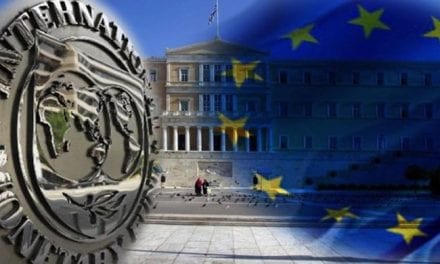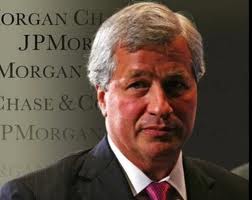By MAX COLCHESTER
The U.S. bank has made a big bet on London’s global financial clout

A vast construction site in the heart of London is a testament to Goldman Sachs Group Inc.’s $500 million bet on the city’s global financial clout.
But the bank’s new European headquarters might be a little emptier than planned if the U.K. votes in June to leave the European Union, Goldman’s executives say.
The warning underscores a twist in what is turning into an increasingly fractious fight over whether the U.K. should opt for “Brexit”: the business groups that have the most to lose are neither European nor British.
For years, big U.S., Swiss and Japanese investment banks have used the U.K. as a financial springboard into the EU. A key attraction: the right to seamlessly sell their services across 28 nations without having to get regulatory approval in each individual country. Today, the U.K. is a European hub for derivatives and foreign-exchange trading. Around half of the U.K.’s £6.9 trillion ($9.8 trillion) in banking assets are held by non-British institutions, according to Fitch Ratings.
No one knows what exactly would happen if the U.K. voted to leave the EU. The process could take years. The U.K. might be able to negotiate access for its banks to the EU. Or it might not.
But faced with the prospect of spending billions of dollars to rejig their operations, banks have been lobbying intensively against Brexit.
Among those leading the charge is Goldman Sachs. For three years, the bank’s executives have publicly warned about the downsides of leaving the EU. The bank has donated around $700,000 to a group which is lobbying against Brexit, according to a person familiar with the matter. Its executives have signed warning letters to major British newspapers. An EU flag currently flutters above its London headquarters. Last fall the bank organized events on the sidelines of opposition Labour and governing Conservative party conferences to debate the role of the U.K. in Europe.
During the annual meeting of the World Economic Forum in January in Switzerland, Gary Cohn, president of Goldman Sachs, reiterated a well-rehearsed warning. “It is imperative for the U.K. to keep the financial-services industry in the U.K.,” he said, adding, “I don’t know what would replace that industry.”
The advocacy by U.S. banks has antagonized those, often at smaller brokers or hedge funds, who say the U.K. financial sector would be less heavily regulated outside the EU and thrive. “Why would the Americans be interested in what is good for the U.K.?” said Howard Shore, executive chairman of Shore Capital Group PLC, an investment group. “They are interested in what is good for their bank.”
The European trading bloc has been a boon to Goldman Sachs. In 1970, the U.S. investment bank arrived in London with five people. After the deregulation of the U.K. financial sector in the 1980s, a rapid expansion began. Despite its London focus, Goldman’s operations spread out across the continent with trading floors in Frankfurt, Paris and Milan.
In 1999, the launch of the European single currency, the euro, ended that. The bank no longer needed big offices in multiple European countries chasing deals in many different currencies. Goldman spent several years unwinding its European operations and concentrating them in London. This allowed the bank to centralize the cost of dealing with clients. A scattering of offices across Europe were kept mainly for sales teams.
Today, Goldman services Middle Eastern and African customers in London too. Some 90% of its 6,000 staff based in Europe are in London. Europe, the Middle East and Africa accounted for 27% of Goldman’s $33.8 billion of net revenue in 2015.
About a decade ago, Goldman launched project “Armada,” a plan for a hulking European headquarters on the site of an old telephone exchange in London.
Unbundling this kind of structure will be expensive and time-consuming, lawyers and bankers say. Goldman is mapping out which jobs might be hit by a loss of this passport, or the right to sell services across the EU, while scoping out European countries where it has existing banking licenses and infrastructure that could quickly be scaled up, according to a person familiar with the matter. Goldman also has a banking license in Germany, for instance.
In the event that this passport was lost, derivative and currency trading with EU counterparts would likely be hit hard. A large portion of euro currency and securities trading takes place through London, outside the eurozone. In the event of Brexit, EU authorities may well press for the trading of euro securities to be cleared within the trading bloc, bankers say.
Another guessing game: predicting how many back-office staff would have to leave London to support those traders and sales teams. It is probable European regulators will want activities to be overseen by on-site compliance staff. Senior management may need to be present to take responsibility for decisions there.
Some jobs probably wouldn’t be affected by Brexit, such as mergers and acquisition advice which could still be done from London. Business with non-EU based companies would also remain largely untouched.
A revised version of an EU directive is coming into force, perhaps in 2019. It should allow non-EU investment companies to do business across the EU if they are based in a country that is adequately regulated. Lawyers are hopeful the U.K. would qualify. This would solve a major headache for big banks.
Already officials from Dublin and Frankfurt are quietly touting the appeal of their cities to U.S. and Swiss banks in London. But the U.K. is unlikely to lose its international banking business overnight. Time zone, language, common law and the attractions of the city itself are expected to act as a buffer.
Goldman Sachs is still forging ahead with the construction of its London-based European headquarters. The modernist building is set to open its doors in 2019. The bank says it can rent out any empty floors to other companies.


















